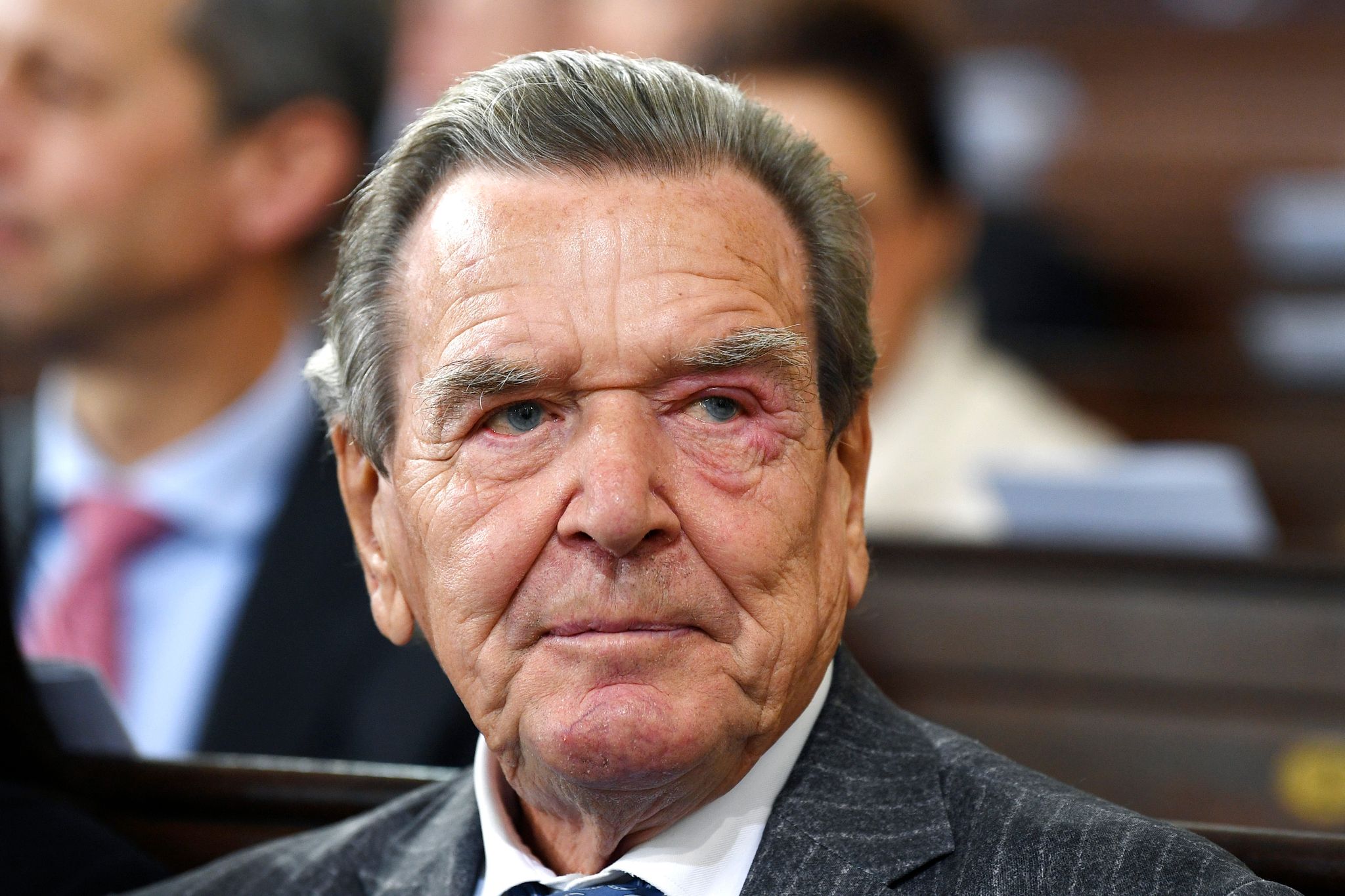He gave importance to improving relations between Russia and Germany during his chancellorship: Who is Gerhard Schröder?
Schröder, who served as Chancellor of Germany from 1998 to 2005, developed a close friendship with Putin during that period. Just a few months after resigning as prime minister following the 2005 election results, he became chairman of the supervisory board of Nord Stream AG, a Russian-German company owned by the Russian state energy company Gazprom.

Gerhard Schröder was born on April 7, 1944 in Mossendorf. Schröder studied law at the University of Göttingen between 1966 and 1971 and opened his first law firm in 1978.
Schröder, who has a socialist view, started his political life by joining the Social Democratic Party of Germany (SPD) in 1963. Between 1978 and 1980, he served as Chairman of the SPD youth organization JUSO for two terms. Schröder, who became a member of the Party Executive Board in 1986, served as a deputy in the federal parliament in Bonn between 1986 and 1990.
Gerhard Fritz Kurt "Gerd" Schröder (born 7 April 1944) is a German lobbyist and former politician, who was the chancellor of Germany from 1998 to 2005. From 1999 to 2004, he was also the Leader of the Social Democratic Party of Germany (SPD). As chancellor, he led a coalition government of the SPD and Alliance 90/The Greens. Since leaving public office, Schröder has worked for Russian state-owned energy companies, including Nord Stream AG, Rosneft, and Gazprom.
In 1990, he won the state elections and became president of the state of Lower Saxony. In the Lower Saxony election held in March 1998, when the SPD received a very good result with 48 percent of the votes, the party Board of Directors immediately declared Schröder the Prime Minister candidate for the general elections.
Schröder led the party to a major victory against Helmut Kohl, who had been prime minister since 1982, and the Christian Democratic Party, and formed a coalition government with the Greens.
While he put foreign policies focused on the European Union and NATO, which were prioritized before him, on the back burner, he gave importance to improving relations with Russia and Germany.
He also supported the UN's Afghanistan operation, drawing the reaction of the Green Party in the coalition. Schröder, who needed the support of the Greens more in the 2002 elections, rejected Germany's involvement in a military operation in Iraq during the election campaign, leading to a re-examination of trans-Atlantic relations and the ignition of discussions about their future.
He strongly opposed any use of force that would lead to the American invasion of Iraq. Schröder, who had the support of Turks in Germany, displayed a supportive attitude towards Turkey in the international arena and attracted attention as one of the advocates of Turkey's European Union membership process.
The political power of Schröder has experienced a decrease in public support due to problems such as the economy that has not been growing in the country recently, the health and social services being no longer able to handle it, and the introduction of new reforms that include limiting state expenditures has reduced his political power.
He resigned as party chairman on February 6, 2004; but he continued his duty as chancellor for a while longer.
He resisted cutting ties with Russia
Schröder, who served as Chancellor of Germany from 1998 to 2005, developed a close friendship with Putin during that period.
Just a few months after resigning as prime minister following the 2005 election results, Schröder became chairman of the supervisory board of the Russian-German company Nord Stream AG, majority-owned by the Russian state energy company Gazprom.
In 2017, Schröder was also elected chairman of the supervisory board of the Russian state energy company Rosneft.
But since Moscow launched its invasion of Ukraine in February 2022, Schröder has come under intense criticism for his close ties to the Kremlin and his reluctance to cut trade ties with Russia.
The former German leader condemned the occupation as unjust but did not criticize Putin. He also continued to hold lucrative positions at Russian energy giants until public and political pressure forced him to give them up.
Couldn't stand the pressure anymore
The German Parliament sought to reduce Schröder's special rights and privileges as a former chancellor. He was stripped of his taxpayer-funded office and staff.
The European Parliament also passed a resolution calling for sanctions against Schröder and other EU political figures with financial ties to Russia.
After all this, Schröder finally announced that he would leave Rosneft's supervisory board in May 2022. He also turned down an offer for a supervisory board position at Gazprom.
